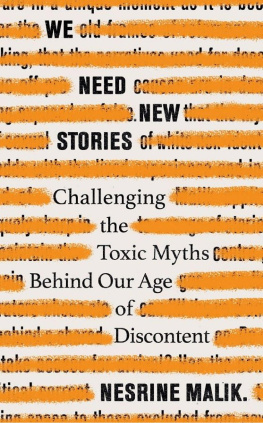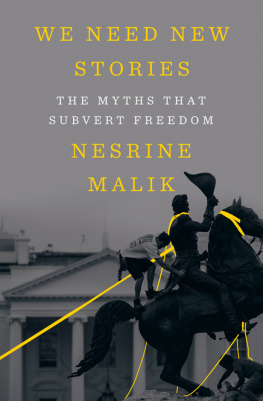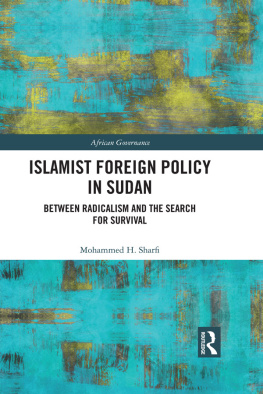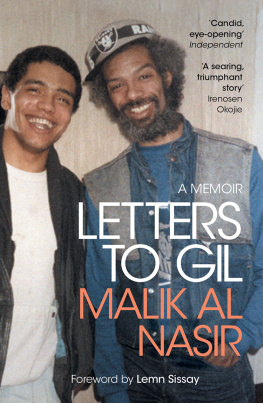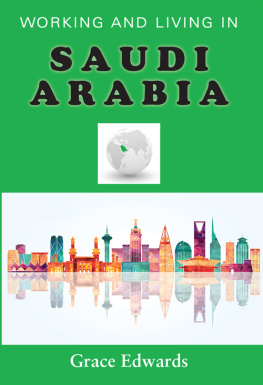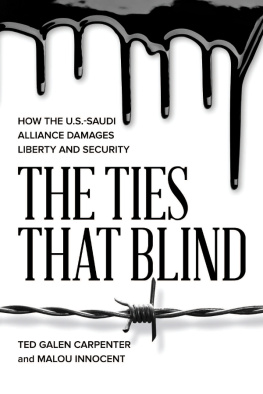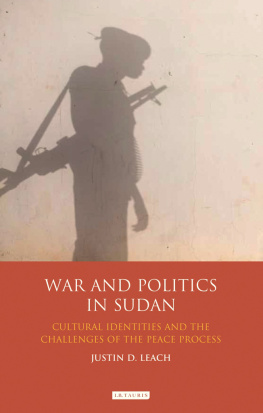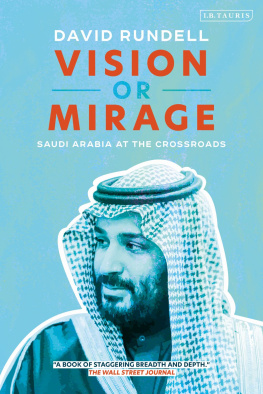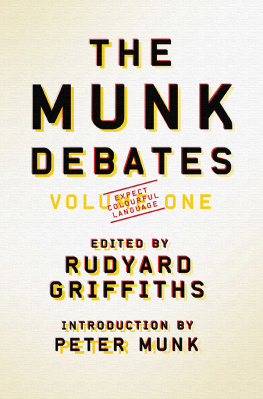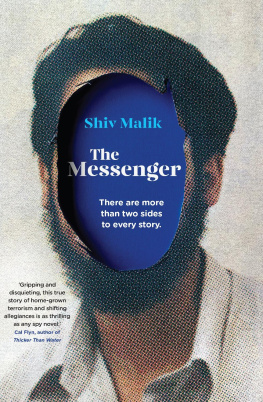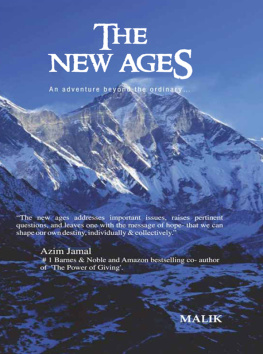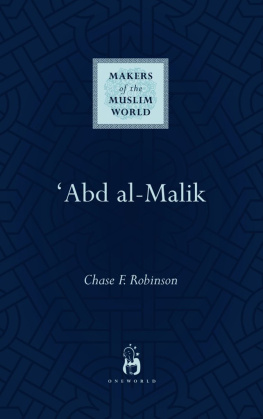
CONTENTS
To Hiba, who writes new stories every day
When I was a child, my grandmother, a woman from a Sudanese rural uneducated farming family, used to tell me long, elaborate tales about the land and property her late husband owned. She would speak about how large their house was The Fortress, it was called, because it was the biggest house in the village and about my grandfathers largesse and business acumen. Her favourite detail, one she repeated often, was how one could not carry a hot drink from one end of the house to the other without it getting cold. While other children were told fairy tales, my sisters and I were fed a diet of hyperbolic stories about the difficulties of navigating a large family estate. In addition to the beverage cooling issues, visitors apparently often lost their way, children had to be on standby at meal times to make the long trip to the kitchen for any requests and, allegedly, guests staying in the house could manage not to run into each other for days. If this sounds implausible to you then you would be right. Even as a child, the whole unnavigable fortress business seemed to be, above anything else, a highly impractical arrangement.
Yet still, I wanted to believe it. When, in my teenage years, I finally visited the seat of the Maliks in northern Sudan, the treasures, the land and The Fortress, the tea cooling distances were in fact puny, deserted and crumbling. My grandmother, by now deceased and thus unavailable for interrogation, had lied. I obviously knew on some level that she had embellished her tales, but her fantasies were so removed from the reality (the mud dwellings in which I was standing) that I was angry at her but also a little angry at myself. I felt like the deluded greedy treasure hunter, carrying a map with an X marking the spot where the birthright jewels are buried, only to find that the rocks in the treasure chest held no precious stones. I was a dunce at the end of a morality tale about pride and gluttony.
It should have been obvious to me that there was no Malik loot. Along with my grandmother, we had two uncles and an aunt squatting in our Khartoum house throughout my childhood. Sometimes when the house was busy they were forced to sleep in the yard. It was either a non-existent, or very illiquid treasure. But after a wave of self-loathing at my own eagerness to believe that I was the descendant of some high-born woman, I felt sorry for her. She had lied but also in a way she hadnt. She had spun and then believed her own inventions because she needed to. Her stature, severely diminished by her husbands untimely death and his poor economic planning, meant that at the age of twenty-five she was an impoverished widow with five children. The stories had to be woven to sustain her, to create a cushion on which to land, as her real status plummeted. All my childhood I was fed this ancestral myth that still remains fixed for many of my generation of Maliks. It is a sort of private family madness. The story of the tea growing cold is still told by people who were born years after the original fable was made up. It is a fantasy, but a harmless one.
I grew up in a household and culture swaddled in such myth. The first, most important, foundational story was of a Malik family rooted not just in wealth, but in honour, grace and a kind of nobility. In Sudan, so profound is this view of an exceptional provenance that the Arabic word asl , meaning origin, has taken on another meaning. To behave badly, to question convention or simply to hail from a small inconsequential family all falls under the umbrella of having no asl , no origin. Growing up, my three sisters and I were terrified that we would be accused of any of this. My mother, who was actually from a small and inconsequential family where there were no fortress fables to be told, had scandalously married into the Maliks. My father was a rebel who refused an arranged marriage to several good origin relatives and instead brought home a young university student whose father worked in a rural soda bottling plant. A father who, worst of all, had shown up in the village from nowhere, some twenty-five years ago, with only a bundle of clothes, a prayer mat and a rosary. My mother was an interloper in the fortress family and it never let her forget it, constantly bearing down on her lack of breeding, which she consequently became obsessed with, passing on that social and familial paranoia to her children. It took a long time for me to become not only educated out of this self-imposed sense of status via self-censorship, but re-educated into recognising the way history, society and family had leveraged this flattering sense of relative superiority to ensure that we, as women, not only did not question subordination, but competed at suffering it with perfect self-composure. I do not think it is hyperbole to say that it was akin to leaving a cult.
I moved to the UK in the mid-aughts from Saudi Arabia, where my family was living at the time, and it was at great personal cost. It was an escape of sorts, but not from a gilded-cage-behind-the-veil oppression, just from the certainty of slow suffocation. I knew I didnt have what it took to stay and make a life in Sudan or Saudi Arabia. I didnt know what it was. Sometimes I felt it was a lack of moral fibre because of my failure to take to religion or social conservatism in general; at other times, I flattered myself that I was just too irrepressible a spirit to fit in. Whichever, I felt compelled to work three jobs for three years and save enough money to move to the UK to start a post-graduate degree. I fantasised about what my life would be once I left home to get me through those hard days. I remember fixating on one single thought being able to leave my house and shut the door behind me without having to tell anyone where I was going or when I was coming back. That image did not disappoint when it finally happened, although the house in the dream was, in reality, a series of damp flat shares and for a long time I couldnt afford to go anywhere but to university and back. To this day, I still get a kick out of it.
But my initial sense of relief, even euphoria as I enjoyed simple basic freedoms after a life suffocated by the narcissism of propriety, soon melted away. I had naively built an idealistic image of a West where sure, things werent perfect, but where the basics as far as social justice was concerned had been ironed out, or at least where attempts to iron them out were ongoing. I was not prepared for all the ways my new home was different, but in other ways the same as the one I had just left with a different sort of tribalism, a different manifestation of misogyny, a codified economic system of injustice. The sexism, in particular, was overwhelming as well as pernicious. Here I was again, deluded, with my treasure map.
I moved to the UK only two years after 9/11. And I was Muslim, black, a woman and an immigrant. But I also managed, through luck and chance (not meritocracy or any outstanding talent, but more on that later), to secure jobs in finance and the media without the usual requisite networks and affiliations required to do so. So I became an outsider on the inside, without the self-reinforcing circles one would usually pick up through education and socialising, the cosy in-groups whose norms I could bask in. It was like having some magic combination, a full house of difference, while also securing insight to the way things worked, without being compromised (or comforted, many times it felt like a loss, rather than a gain) by any sort of loyalty or sense of belonging to a pack. It became clear to me that here was another fortress mirage. The patterns were familiar. It was just the technicalities that were different.
Next page
